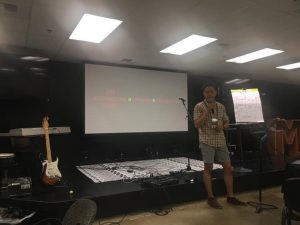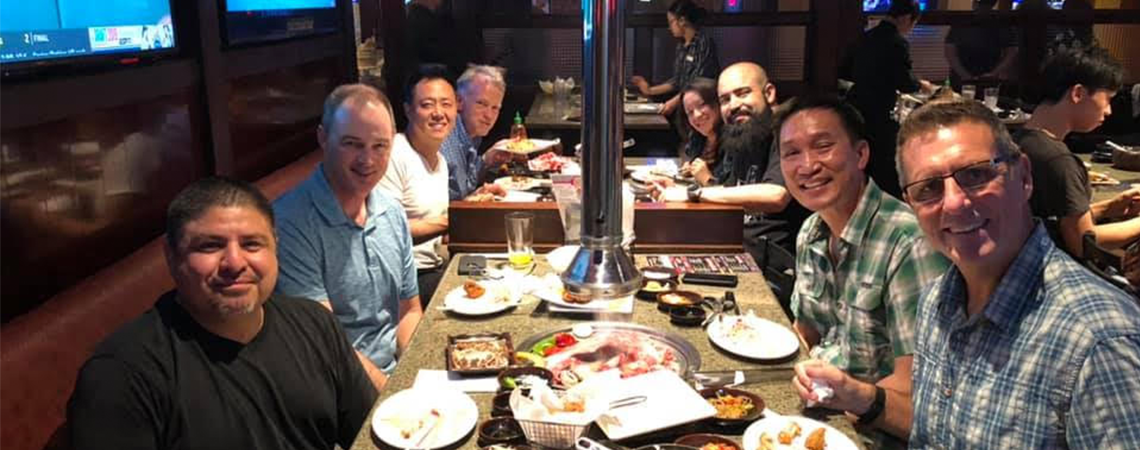By Peter Sung, Conference Coach, PacNWC
 What does it even mean to assess someone? And on top of that, to project that assessment into the future to predict performance? And while we’re at it, factor in marital health, spiritual vitality, and God’s work in and through their life? It’s a ridiculous task, to say the least. And yet, here we are, decades of assessing successfully, for the most part, still at it, hoping for the best, mitigating for the worst. That phrase, “and yet…” curiously reminds me of that other phrase in Scripture that has meant the difference between life and death, “But God…”
What does it even mean to assess someone? And on top of that, to project that assessment into the future to predict performance? And while we’re at it, factor in marital health, spiritual vitality, and God’s work in and through their life? It’s a ridiculous task, to say the least. And yet, here we are, decades of assessing successfully, for the most part, still at it, hoping for the best, mitigating for the worst. That phrase, “and yet…” curiously reminds me of that other phrase in Scripture that has meant the difference between life and death, “But God…”
The “mission impossible” nature of assessing someone is not just for church planters. The NFL, the teaching industry, job interviews – the analysts tell us with statistical certainty that most people get it wrong most of the time. Pastor Tim Keller, one of America’s best church planters, failed his assessment center. Tom Brady was passed over six times. Incorporating personal interviews yields worse results than forgoing them. How, then, have the Covenant Church Planters Assessment Centers continued to bear fruit with industry leading results? I brought this question with me to our latest national Church Planters’ Assessment Center, and here are the three distinctives about us that set us apart, and why I continue to believe in our Assessment Centers.

One, we do not try to imagine potential, but seek to reward faithfulness. After all, it’s what Jesus taught us to do: to acknowledge faithfulness with little by giving more, to know a tree by its fruit, to understand the heart by what falls from the tongue. Simply, God does not ask human beings to know what only He can know – the human heart, the future, the potential. He asks us, rather, to deal with the actual. What do you see that I have already been doing? What do you want to acknowledge and reward? Don’t play God, not even a lesser one, but as servants of God, serve your fellow servants in the name of God. Have they already gathered? Then they might have gathering gifts. Do they communicate well? Then they might preach well. Are they already trustworthy? Then they might be be trusted. If assessors are willing to humble themselves and stop trying to play God, then the wisdom from God, the kind from above, tends to descend.
Two, we work towards, not the same conclusions, but an integrated one. No one assessor knows the whole story, but each one sees clearly something, and when those pieces are put together, a clearer picture begins to emerge. For example, one assessor might be holding an outstanding question or insight. Another assessor might have a cultural or gender lens that informs a way to better appreciate that insight. Still, another assessor may know more about their specific project or context. If further light is necessary, then we bring the question to the candidate and we ask them directly instead of pretending we know. Eventually, when sufficient light has been shed, a sufficient truth emerges, and by that point, we’re not so much as making a decision as we are submitting together to the revealed truth. In short, we engage in a robust, integrating process. It’s humble, it’s relational, and it’s disciplined.

And three, we really, really, really try to join God in what He is already doing, not just in the candidate’s life but in our own lives. We try hard to be constantly aware of our own “issues” – the subjectivity, the limitations, the countertransference that is so common in how we see others. Think log and the speck. We name and minimize the power differential between assessor and candidate and acknowledge that we are only fellow servants, playing a role, at this time, and that really, we all sit at the same level, on the same side of the table, seeking God’s heart and mind together. At its core, the Assessment Center is a spiritual discipline, practiced together, intensely, deliberately, for three days, with great humility, and with great hope. It is not perfect, but we hope to God, it gets close.
[Click Here] for more information on Church Planting in the Pacific Northwest Conference

